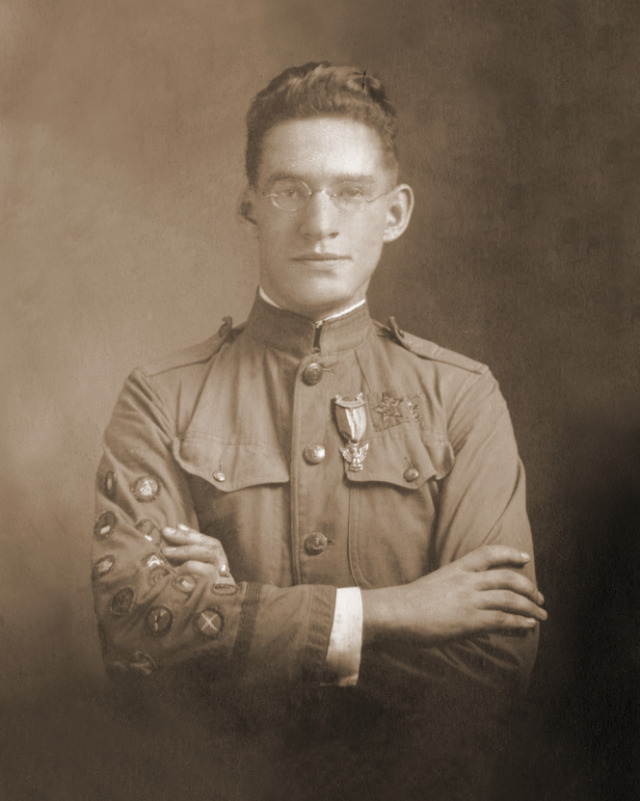FEBRUARY 1920
SEMINARIAN BEQUEATHED LEGACY OF HOLINESS TO DIOCESE
There are no records of a centennial celebration of the Diocese of Richmond (1920). But during that jubilee, the untimely death of a seminarian bequeathed a legacy of holiness to the Church of Richmond at its centenary.
Francis Joseph Parater (b. 1897) grew up in a devout Catholic family in the Church Hill neighborhood of Richmond. There he served daily Mass at the Monte Maria Monastery of the Visitation Sisters from the time of his first holy Communion through high school.
A friendly, talented and well-rounded young man, Frank became involved in scouting and attained the rank of Eagle Scout. He graduated as valedictorian of Benedictine High School (1917), and after two years at Belmont Abbey Seminary College in North Carolina, he decided to become a seminarian for the Diocese of Richmond. He was sent to the North American College in Rome for his theological studies (1919).
Frank contracted rheumatic fever two months after arriving in Rome. He courageously and peacefully accepted death, which came on Feb. 7, 1920. He was 22 years old. Later, a spiritual testament in which Frank offered his life for the spread of the Catholic faith in Virginia was discovered among his personal effects. He had written similarly in a general letter to the Boys Scouts of Richmond.
As Frank’s testament became known, the reigning pope, Benedict XV, and his successor, Pius XI, requested copies of it. The text of that “Act of Oblation to the Sacred Heart of Jesus” appears below.
The cause for Frank Parater’s canonization was introduced in 2001. The year 2020 — the bicentennial jubilee of the Diocese of Richmond — marks the centenary of the death of this remarkable young man.
Act of Oblation to the Sacred Heart of Jesus
To be read only in the event of my death at Rome.
1. I have nothing to leave or to give away save my life, and I have already consecrated it to the Sacred Heart to dispose of it as He wills. I have offered everything I have — everything — for the conversion of the non-Catholics of Virginia. This is what I live for, and, should I die, what I die for.
2. Death does not sadden me; rather it is the most welcome, the most beautiful event of life. Death is God’s messenger who comes to tell us that our noviceship is over and to welcome us to the true life.
3. I do not write this out of melancholy or morbid sentimentality — for I love my life here, I love the College, the men, and Rome itself. But I have longed to die and be buried close to the saints. I dare not ask God to take me to Himself for fear of appearing so ungrateful for the gift of life or as if I wanted to avoid the graver responsibilities of living. At any rate, perhaps never again will I have less to answer for, perhaps never will I be more ready to meet my Creator, my God and my All.
Since I was a child I have wanted to die for the love of God and for my fellowman. I do not know whether I shall ever receive such a grace; but if I do live, it will be for the same end. Every act of my life here is offered for God, that the Church may spread and prosper in Virginia. I have always desired to be only a little child, that I might enter the kingdom of God. When the day of resurrection comes, I want to remain as a child and that it be allowed to me to follow St. John Berchmans, St. Aloysius and St. Stanislaus as their servant and friend. Do we serve God less worthily in Heaven by prayer than we do on earth by our activity? No, surely it is not selfish to want to be with Him who has loved us so much.
And there I will not be leaving those who are dear to me; I will always be close to them, and I will be able to help them much more than I could here on earth. I shall be able to be of more use to my diocese in Heaven than I could ever be on earth.
If it is God’s holy will, I shall go back to Him on Good Friday 1920, and I shall never leave Him again. But not my will, Father, but Thine be done!
Rome, December 5, 1919.

